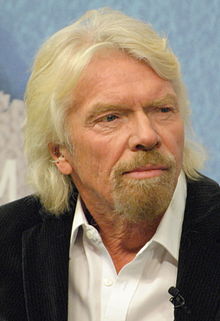Two finance men in suits gave environmentalists (indeed, humanity) reason to cheer yesterday. Led by Michael Bloomberg and Mark Carney, the “Task Force on Climate-related Financial Disclosures”, a global team of banks, pension funds, asset managers and insurance companies (aka. Defenders of the Earth, with money) yesterday published a report recommending that companies provide information about the risks and opportunities presented by different climate change scenarios publicly.
In a letter to Mark Carney, chairman of the Financial Stability Board, Michael Bloomberg, founder of Bloomberg, former Mayor of New York and now chair of the Taskforce on Climate-related Financial Disclosures, said: “Warming of the planet caused by greenhouse gas emissions poses serious risks to the global economy and will have an impact across many economic sectors. But until now, it has been difficult for investors to know which companies are most vulnerable to climate change, which are best prepared, and which are taking action. As the FSB has highlighted, without effective disclosure of these risks, the financial impacts of climate change may not be correctly priced – and as the costs eventually become clearer, the potential for rapid adjustments could have destabilising effects on markets.”
The four recommendations of the report are to disclose:
- A company’s governance around climate-related risks and opportunities
- The actual and potential impacts of climate-related risks and opportunities on the organisation’s businesses, strategy, and financial planning
- how the organisation identifies, assesses, and manages climate-related risks
- the metrics and targets used to assess and manage relevant climate
The hope is that if adopted, the recommendations in the report will make clear, to firms and their investors, the financial consequences of not factoring climate change scenarios into their profit projections.
Clear losers in a world of transparent climate change impact analyses are fossil fuel and natural resources companies, vehicle manufacturers and intensive farmers that are not already considering climate change scenarios, to name a few.

The report from the TCFD came a day after a phalanx of billionaires, philanthropists and wealthy entrepreneurs, led by Bill Gates and including Richard Branson, Jeff Bezos, founder and chief executive of Amazon and Jack Ma, executive chairman of Alibaba, pledged $1 billion to a new fund, Breakthrough Energy Ventures, which is dedicated to providing reliable, low-cost energy, food and services.
Calls for private companies to take the reins in the battle against manmade climate change have grown louder in response to the election of President Elect Donald Trump, a climate change sceptic who has already pledged to put the brakes on a shift away from damaging fossil fuel use.
There are concerns that governments generally lack the motivation to fix such long term problems and that private companies, which have the additional motivation to safeguard their long-term profits by considering climate change risks and opportunities, have the most to lose or gain.
On the TCFD report, Ian Simm, chief executive of Impax Asset Management, a firm that invests primarily in carbon emission reduction solutions, said: “We welcome the Task Force’s ambition to bring consistency and transparency to companies’ environmental reporting and hope that these recommendations will be widely adopted. This report is a call to action to companies to provide investors with the information they need to make informed decisions on climate risk. Pension fund trustees now have a clear framework for assessing climate risk and ensuring that their fiduciary duties in this area can be fulfilled.”
“Impax has published several papers on climate risk in investment portfolios over recent years which have built on the concept that climate change is a measurable investment risk, not an uncertainty. Our climate risk model is, we believe, one of the first to use scenarios for the potential impairment of company cash flows, an approach recommended by the Task Force.”
You can read the full report here.
And if you want your money to support measures to prevent damaging climate change, check this blog.



